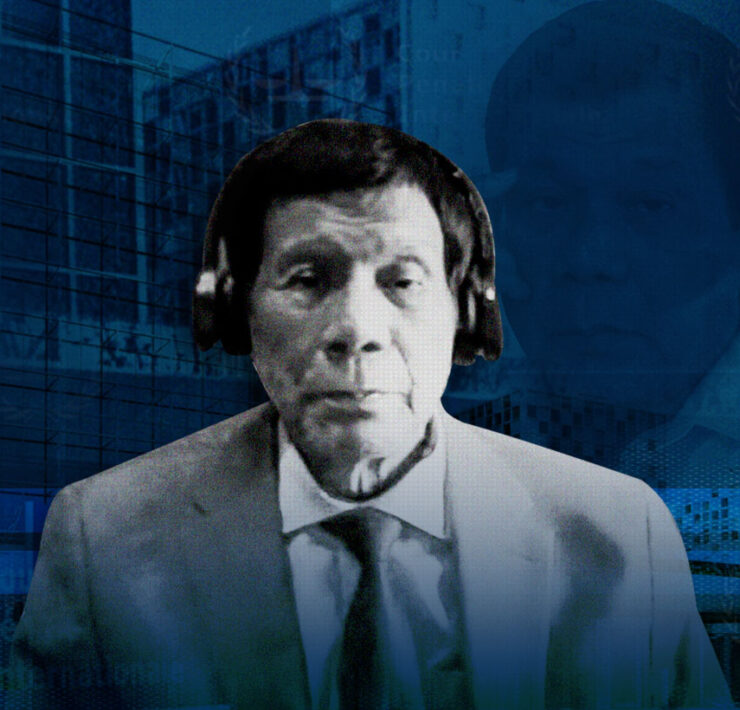Another corrupted agency

In the wake of the corruption scandal plaguing government’s flood control projects, Trade Secretary Ma. Cristina Roque has moved to hold accountable erring members of the Philippine Contractors Accreditation Board (PCAB), whose integrity has been called into serious question due to alleged conflicts of interest, accreditation irregularities, and potential abuse of authority.
Roque ordered the formation of a fact-finding team to conduct “a comprehensive investigation” into the body mandated to accredit contractors for both private and public projects. “This is about ensuring accountability and transparency,” declared Roque, who chairs the Construction Industry Authority of the Philippines (CIAP).
CIAP is an attached agency of the Department of Trade and Industry (DTI) that is tasked to regulate and oversee the construction industry. Its implementing boards include the PCAB, which issues, suspends and revokes licenses to ensure that only qualified and reputable contractors can operate in the country.
This was prompted by the exposé of Sen. Panfilo Lacson, who revealed last week that two of the three members of the PCAB board had construction companies that bagged government contracts while they were in office, a case of conflict of interest.
Lacson said that EGB Construction Corp., owned by PCAB member Erni Baggao, who was reappointed to the PCAB in 2023, was one of the 15 contractors earlier singled out by President Marcos for having cornered the bulk of the country’s, billion-peso flood control projects from 2022 to 2025.
Conflict of interest
Arthur Escalante of Davao City-based AN Escalante Construction Inc., on the other hand, has a contract for an academic building in Mati City, Davao Oriental worth some P9.8 million that was secured in 2022, when he was on the board and a signatory to regular contractor’s licenses.
Escalante had the temerity to claim there was no potential conflict of the interest, on grounds that the board members must actually be contractors in their own right for at least 10 years according to the law creating the PCAB, which was passed back in the 1960s.
Plus, he claimed that they were not required to divest from their companies prior to sitting on the board. “If you divest from your firm, then you’re not qualified to sit on the board, because you’re not a contractor anymore,” explained Escalante.
That excuse did not sit well with Lacson, who underscored the Code of Conduct and Ethical Standards for Public Officials, which clearly stated that government officials should “avoid conflicts of interest at all times.”
“When you enter government service, particularly a regulatory body and you have a conflict of interest due to your business or practice, you should divest from your business within 30 days,” said Lacson.
Fly-by-night contractors
Indeed, Escalante’s justification for his questionable actions is unacceptable and runs counter to the spirit of the accreditation process that was designed to protect the public from fly-by-night contractors.
The board members are supposed to be contractors so that they have the requisite knowledge to determine if other contractors are indeed up to the standards required to undertake projects. But they are not supposed to bag the projects themselves.
As Lacson also pointed out, board members of a body that is supposed to license other contractors necessarily enjoy an “undue advantage” over other contractors since they can use their power to investigate potential rivals or suspend or revoke their licenses.
And the potential violations do not end there.
Lacson even revealed earlier that PCAB licenses for private contractors to take part in biddings for government projects could also be secured for a P2-million fee, an “accreditation-for-a-fee” scheme that the PCAB had stoutly denied.
Stench of irregularities
This was on top of another case of PCAB threatening to not renew the license of certain contractors if they did not pay up around P1 million, a clear example of extortion that lengthens the list of the board’s suspected grievous sins.
The stench of irregularities has become too strong to ignore, and the Filipino public has rightly clamored for immediate and significant action. Thus, the President’s latest directive for the DTI as well as the embattled Department of Public Works and Highways to conduct a “sweeping revamp” at the PCAB is a step in the right direction.
Newly appointed Public Works Secretary Vince Dizon had said that this was one of the urgent directives that Mr. Marcos wanted him to implement as the investigation into the controversial flood control projects goes into higher gear.
The Filipino public, who has long suffered from the consequences of corruption such as widespread flooding that could have been controlled if projects funded by public money had been completed as expected, deserves more than strong words and promises to throw the book at violators. Justice entails that culprits are prosecuted, and taxpayer money recovered and spent for the benefit of the citizens.





















